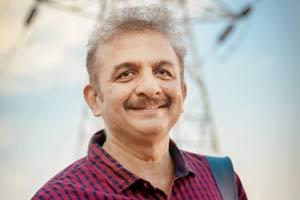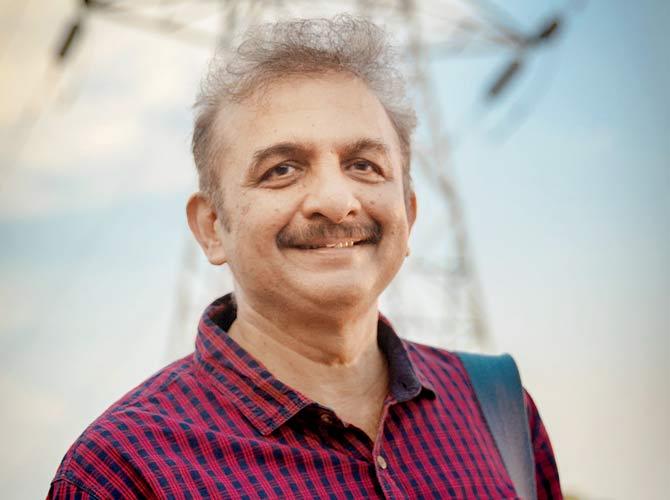Even though most of the stories were originally written in Kannada over two decades ago, starting in the 80s, which Kaikini calls the "pre-smartphone" era, they still ring relevant


Jayant Kaikini
Leafing through the pages of Jayant Kaikini's book, No Presents Please (HarperCollins India), is like journeying through Mumbai. From landmarks like the Royal Opera House and Churchgate, to unnamed nooks and crannies in Andheri, or a highway in Ghatkopar, the writer takes us nearly everywhere. The hyper-local focus that brings alive disparate areas and lives breathes in a whiff of Mumbai air into each of these short stories. An unspoken relationship between a torch boy and a cinema-goer in Malhar Theatre, a taxi driver and his two passengers on the day of the 2006 deluge or a wedding set in a chawl - these nuggets are unmistakably Mumbai. And, in each story, translated by Tejaswini Niranjana, the locality itself becomes a character, so much so, that the story seems hard to imagine anywhere else.
ADVERTISEMENT
Even though most of the stories were originally written in Kannada over two decades ago, starting in the 80s, which Kaikini calls the "pre-smartphone" era, they still ring relevant. Their timeless appeal comes from the writer's perception of Mumbai as a "spiritual city". We point out that's not a word many would associate with Mumbai. "For many, Bombay is dusty, congested, hot. While it is all that, it's also a place that liberated a small-town person like me from divisions like caste, class and status. Here, the only thing you're asked is what is the work that you do. It is through work alone that the city has a collective mind of its own, from Ulhasnagar to Borivli to Churchgate. I find that spiritual. I've never believed spirituality can only be attained in the mountains, in total isolation. For me, it has to happen in VT [now, CSMT] station, among people," says Gokarna-born Kaikini, who came to the city in 1976 in search of a job.
His quest took him to all corners of the city, across the three railway lines, which is how he grew familiar with Mumbai in a very short time. "As bachelors, during weekends we had nothing to do, so we would set off to explore the city. I've always found details very lively and I loved to observe life around me. Perhaps, that's why when I sat down to write, the stories just came to me. One could say they were inspired by the people I saw. But, as a writer, I never had a plot in mind. Some writers do. I just start to write and go where it takes me. Along the way, the dots gets connected - it's a process I cannot explain. My friend Yeshwant Chittal would say, 'I don't write what I know, I write to know'." Chittal, incidentally, authored Shikari in Kannada, also set in Mumbai.
Until they were translated, Kaikini's Mumbai stories spoke only to the Kannada reader. Language, in the context, becomes interesting, as the writer points out. "I speak Konkani at home, Marathi in local trains, in office I speak Hindi with my colleagues, and I fight with my boss in English. And then, I come back home and write in Kannada. All my characters are Mumbai people, speaking Kannada. This multi-lingual sensibility is common for many Indians. What makes it interesting is that each language is a mode of thought," says the 63-year-old writer.
In 1974, Kaikini won the Karnataka Sahitya Academy award at 19 for his debut poetry collection, and since then, it has been an eventful journey with words. Today, he's the four-time recipient of the Kannada Filmfare award for best lyrics. He stayed in Mumbai in Mulund for 23 years, while working in the pharmaceutical industry. It was after the chemical factories begun to shut, that he shifted to Bengaluru. "My stories are a product of the time I lived in Mumbai, and I lived it intensely. Like most small town people, when I was new to Mumbai, it felt like I was a small part of it. As days passed, it became a big part of me. It's a place that washes you inside out and hangs you out to dry."
Catch up on all the latest Mumbai news, crime news, current affairs, and also a complete guide on Mumbai from food to things to do and events across the city here. Also download the new mid-day Android and iOS apps to get latest updates
 Subscribe today by clicking the link and stay updated with the latest news!" Click here!
Subscribe today by clicking the link and stay updated with the latest news!" Click here!







